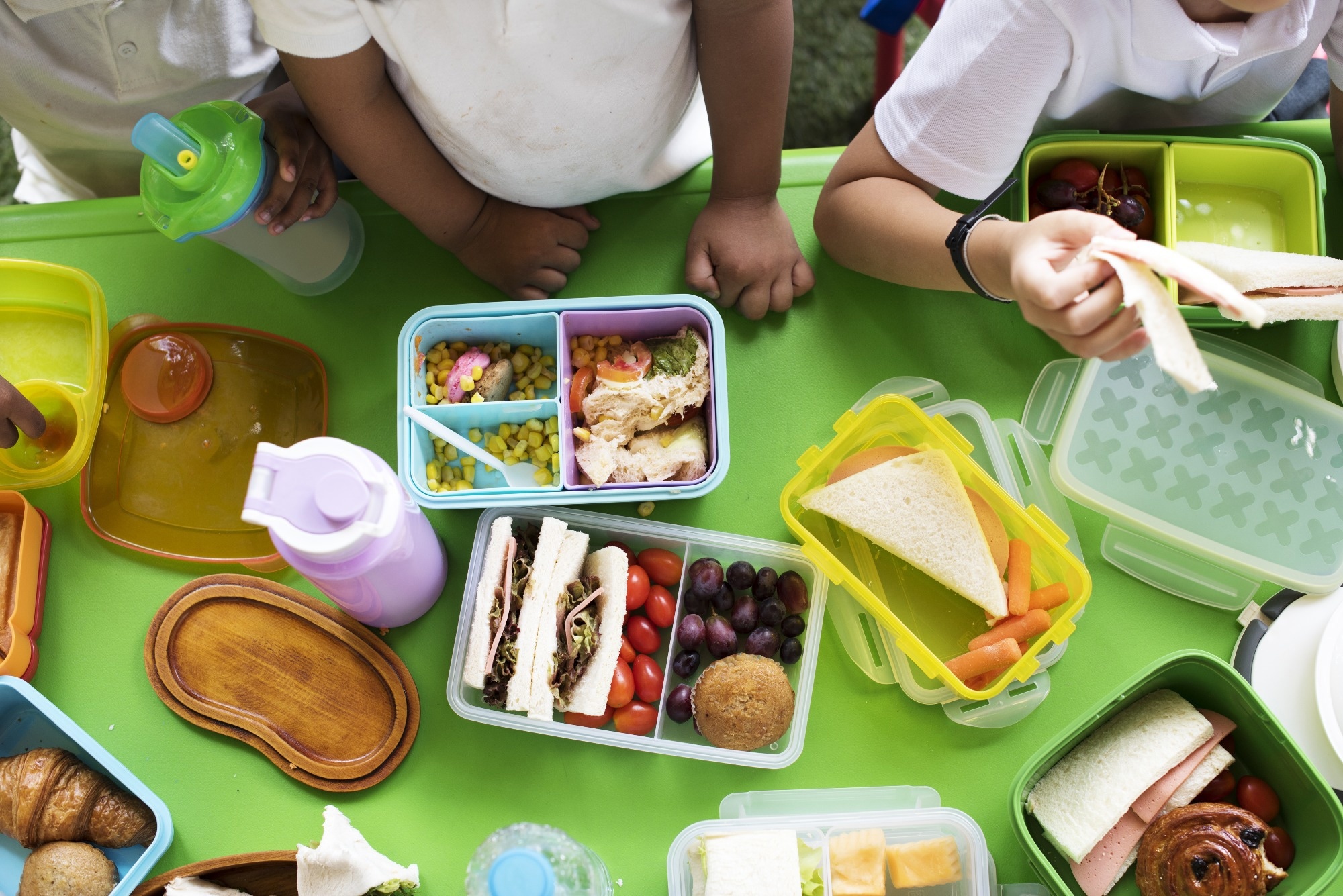In a recent study published in the journal Nutrients, researchers investigated whether a meticulously crafted meal plan for children in kindergarten aged five to six years could effectively increase their regular intake of vegetables, whole grains, and nuts.
The preschool years are a time of rapid growth and development and a vital age for forming lifelong food habits. In pre-primary schools, students receive at least three meals (breakfast, lunch, and snack), which are frequently complemented by an additional snack. The relationships between foods, nutrients, and dietary patterns have significant health consequences, particularly for preventing and developing noncommunicable diseases (NCDs) such as diabetes, cardiovascular disease, and cancer. According to studies, preschoolers do not eat enough nutritional foods such as fruits, vegetables, nuts, and whole grains.
 Study: Can Kindergarten Meals Improve the Daily Intake of Vegetables, Whole Grains, and Nuts among Preschool Children? A Randomized Controlled Evaluation. Image Credit: Rawpixel.com / Shutterstock
Study: Can Kindergarten Meals Improve the Daily Intake of Vegetables, Whole Grains, and Nuts among Preschool Children? A Randomized Controlled Evaluation. Image Credit: Rawpixel.com / Shutterstock
About the study
In the present cross-sectional study, researchers evaluated the impact of carefully designed kindergarten meals on the regular consumption of healthy foods among kindergarteners.
The study included 94 children attending six kindergartens who were randomly allocated to the prototype (PG, four kindergartens) and the control groups (CG, two kindergartens). The PG group participants were provided a prototype five-day plan including regulated portion sizes of fruits, vegetables, nuts, and whole grains complying with dietary recommendations.
In contrast, the control group followed their regular diet plan. Individuals maintained their regular eating habits beyond kindergarten and on weekends. The mean daily consumption of particular foods was comparatively evaluated based on the dietary recommendations for pediatric individuals using the Open Platform for Clinical Nutrition (OPEN) dietary evaluation tool, coupled with a one-week diet record of dietary intake within and beyond kindergarten.
The researchers estimated the mean dietary intake from seven groups of foods (vegetables, fruits, refined grains, potatoes, whole grains, meat and alternatives, nuts, and dairy products) in the PG and CG groups. In addition, they compared the dietary intakes between the groups to the RDFI. Individuals were recruited between August and September 2019, and the intervention was conducted from March to June 2020. Data were obtained by a pediatrician who performed regular medical examinations prior to school enrollment from March to June 2020.
Unsweetened tea and water were excluded from the data since they were unequally consumed by participants. Parents were provided forms to record their child’s dietary intake and also received booklets featuring household measures to aid in food intake determination, aligned with the Pilot Study for Assessment of Nutrient Intake and Food Consumption Among Kids in Europe (PANCAKE).
Results
In total, 57 individuals completed the intervention study, including 40 prototype and 17 control group participants. Among PG group individuals, the mean daily consumption of nuts, vegetables, and whole grains was statistically significantly greater compared to that among CG group participants, in comparison to the dietary guidelines. Of note, only foods consumed in kindergarten settings significantly enhanced the overall dietary intake.
In the PG meal plan, the percentage of vegetables ranged between seven percent and 74%, whereas the vegetable proportion in the CG plan was 12% to 70%. In comparison to the PG plan, the CG plan provided a significantly lower intake of vegetables (103 g versus 188 g), whole grains (54 g versus 137 g), and nuts (0g versus 14g). In contrast, CG meals provided higher intakes of refined foods and potatoes (169 g versus 74 g) and fruits (198g versus 143 g) in comparison to the PG meal.
PG meals had significantly greater dietary fiber, fat, energy, zinc, vitamin C, and vitamin E content compared to CG meals. KG and CG plans provided the children with 72% and 57% of the Dietary Reference Intake (DRI), respectively, for energy. While the PG kindergarten meals comprised adequate fat content (72% of the DRI value), the CG kindergarten meals were unable to meet the DRI requirement (64%).
PG and CG kindergarten meals contained five grams and four grams of salt, respectively, which were above the maximum permissible limit. Non-significant differences were observed between the PG meals and the CG meals concerning the intake of dairy products (72% versus 55% of the RDFI) or meat and alternatives (54% versus 45% of the RDFI) in kindergartens.
Overall, the study findings showed that precisely crafted kindergarten meals considerably contributed to the regular intake of fruits, vegetables, nuts, and whole grains during the weekdays among kindergarteners. Structured kindergarten nutrition is of greater quality than non-kindergarten nutrition. The study findings have the potential to influence favorable changes in pediatric nutrition in educational settings.